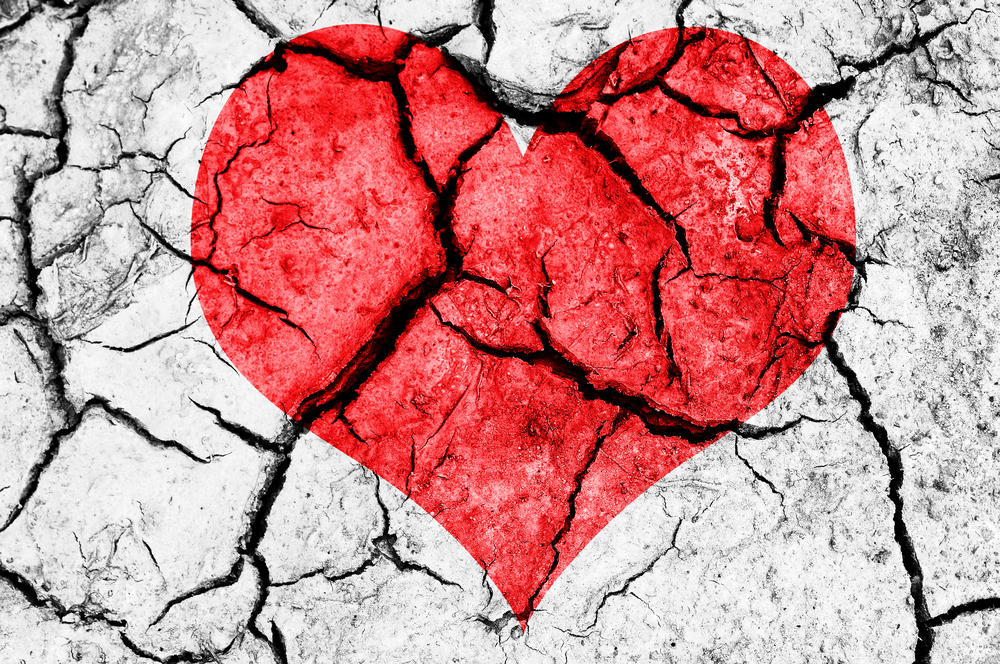
Why Do Cardiologist Have to Ask About Their Client’s Love Life?

Whether we feel extreme joy, sadness, love, grief, or anger, it often reflects the beating or movement of our heart. According to most health and relationship experts, our heart serves as the house of our emotion, and the two have an intimate connection that affects one another. For example, the extreme fear, grief, or longing we feel can be the cause of a sudden, serious cardiac arrest that may result in our untimely death.

Nutlegal Photographer/Shutterstock
According to the cardiologists, our physical heart often interlinks with our metaphorical heart, which is the foundation of our emotional system.
Whenever we feel stressed or experience emotional turmoil, it sets off our heartbeat into a fight or flight response. Whenever we feel nervous, our heart starts beating like crazy and sometimes we even have trouble breathing. This is why most cardiologists believe our love life can be the answer to the current status of our physical heart.
The Origin of Broken Heart
We often hear the term “broken heart” especially when it comes to relationships that ended recently. Both partners experience a deep grief and sorrow as they pick up the pieces of their broken relationships.
Oftentimes, these people feel like they’ve lost their will to move on and become depressed as they don’t know what to do with their lives from now on. But did you know a broken heart isn’t only meant for this metaphorical condition? According to the cardiologists, it’s also a case of physical heart condition first discovered by a Japanese cardiologist.

NeagoneFo/Shutterstock
The “broken heart syndrome” is derived from the physical heart condition named takotsubo cardiomyopathy.
According to a Japanese cardiologist, the takotsubo cardiomyopathy is a medical condition wherein the heart weakens in response to extreme grief or stress, in which these emotions can be triggered after a recent breakup or death of a loved one.
The patients (mostly women) develop symptoms similar to a heart attack. They experience shortness of breath, chest pain, and even a congestive heart failure. When viewed on an echocardiogram, the cardiologist found out the heart muscle balloons into a distinctive shape similar to a Japanese octopus-trapping pot with a narrow neck and wide base, more commonly known as takotsubo.
Cases of Takotsubo.
While the takotsubo syndrome generally gets resolved in a few weeks, the cardiologists note the acute period a patient experiences the syndrome can be fatal. According to them, it can even cause the patient to have life-threatening arrhythmias, heart failure, and even death.
The first studies of this medical condition were conducted on victims who suffer from physical or emotional trauma. Eventually, they died not because of injuries but because of cardiac causes. Aside from that, the cardiologists claim broken hearts can also occur in patients who are not aware they’re already experiencing immense grief. One case recorded was when a cardiologist met an older patient whose husband died two weeks earlier. While the patient was sad, he claimed the woman was accepting her husband’s fate.

Piotr Krzeslak/Shutterstock
The autopsies on the bodies also showed telltale signs of cell death and heart injury.
According to her, her husband had been suffering from dementia. But when they attended the funeral a week after, the patient was tearful as she gazed at her husband’s picture and experienced a shortness of breath and chest pain. She had a sweaty brow, distended neck veins and panted while sitting in a chair. According to the cardiologist who attended her, she was showing all signs of congestive heart failure. Her ultrasound showed how her heart weakened to less than half of its original strength.
However, the other tests conducted on her showed no signs of any physical discomfort like clogged arteries that caused the attack. Two weeks later, her ultrasound and tests returned to normal when her emotional state stabilized.
Matters of the Heart
The cases of takotsubo condition have been often linked to any stressful situations where grief, longing, and sadness is activated. For example, a massive earthquake that erupted in Japan’s Honshu Island last 2004 left 60 people killed and thousands injured.
Meanwhile, a happy heart helps heal the injuries in your body and improves your overall health and wellbeing. So the next time your cardiologist asks about your love life or any situations you’re in, don’t hesitate to unload your burden and share it with them.
More in Love Life
-
`
5 Effective Ways to Provide Support for Mental Wellbeing in 2024
In a fast-paced world where stress and anxiety seem to lurk around every corner, prioritizing mental wellness has become more crucial...
March 11, 2024 -
`
6 Innovative Strategies to Cultivate Meaning in Your Life
Have you ever pondered the essence of your existence, the very fabric that weaves the tapestry of your life? Each of...
March 4, 2024 -
`
5 Essential Questions You Must Ask Your Couples Therapist
What Is Your Experience and Specialization in Couples Therapy? Imagine you are hiring a chef. You would not want someone whose...
February 26, 2024 -
`
Celebrity Exes Who Are Still on Friendly Terms!
Celebrity breakups are often messy affairs that play out in the public eye, with tabloids and social media outlets speculating on...
February 22, 2024 -
`
Financial Wellness Retreats: Combining Vacation and Money Management Education
In today’s modern world, where the hustle of everyday life often leaves little room for personal development, especially in areas like...
February 14, 2024 -
`
Understanding OCD: Symptoms, Causes, Diagnosis, and Treatment
In the vast tapestry of the human experience, few conditions have intrigued and perplexed us like Obsessive-Compulsive Disorder (OCD). Characterized by...
February 13, 2024 -
`
How Tiny Lifestyle Changes Can Help Overcome Bipolar Disorder
Bipolar disorder is a condition marked by extreme mood swings. It can often make life seem like an unpredictable journey. However,...
February 6, 2024 -
`
The Role of Relationships in Retirement: Marriage, Cohabitation, and Financial Futures
Picture this: you’ve finally retired. The sun-drenched beaches, leisurely mornings, and long-awaited freedom beckon. But amidst the celebratory buzz, a silent...
January 30, 2024 -
`
How to Keep Your Towel Always Fresh & Smelling Great? 5 Creative Tips
Use Vinegar and Baking Soda AS Detergents Forget about the fancy detergents. Sometimes, the simplest solutions are right in your pantry....
January 22, 2024















You must be logged in to post a comment Login